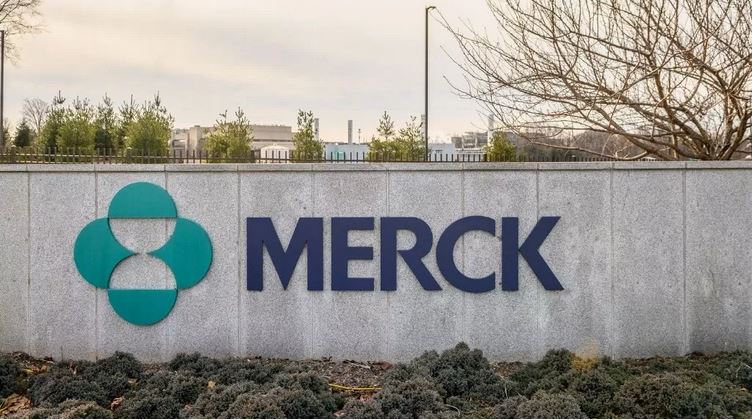October 03, 2021
Life value
STELLAPHARM was born to care and protect patient’s health, to help enhancing their lives and living longer. Your health, for today and for future.

In a late-stage clinical trial, a new antiviral pill halved the chance that patients diagnosed with COVID-19 would end up in the hospital or die from the disease, the drugmaker Merck announced Friday (Oct. 1).
The drug, called molnupiravir, was developed by Merck and Ridgeback Biotherapeutics and could be the first oral medication specifically approved for the treatment of COVID-19, assuming the U.S. Food and Drug Administration (FDA) authorizes its use, Stat News reported. That said, data from the trial hasn’t yet been peer-reviewed, so the drug’s safety and efficacy still need to be confirmed.
The pill works by introducing mutations into the coronavirus’s genetic material, or RNA, as the virus tries to make copies of itself, according to a report published Sept. 13 in the journal Nature Structural & Molecular Biology. In essence, once converted to its active form inside the body, the drug mimics a building block of RNA and wedges itself into the growing RNA sequence, thus gumming up the works. This antiviral mechanism is somewhat unusual, so safety data from the trial will need to be carefully assessed to see if the pill has any unintended effects, Dr. Andy Pavia, chief of the Division of Pediatric Infectious Diseases at University of Utah, told Stat News.
“With the virus continuing to circulate widely, and because therapeutic options currently available are infused and/or require access to a healthcare facility, antiviral treatments that can be taken at home to keep people with COVID-19 out of the hospital are critically needed,” Wendy Holman, chief executive officer of Ridgeback Biotherapeutics, said in the Merck statement.
The trial included 775 adults diagnosed with mild-to-moderate COVID-19, and each of the participants had at least one risk factor associated with poor COVID-19 outcomes, such as diabetes or heart disease. Within five days of developing symptoms, the participants were randomly assigned to receive either a five-day course of molnupiravir or a placebo pill, Merck reported. Participants took two pills a day over the five days.
And 29 days from the start of treatment, 53 patients, or 14.1%, in the placebo group were hospitalized or died due to COVID-19. Among those who received molnupiravir, only 28, or 7.3%, were hospitalized, and no deaths were reported in the group.
The Merck statement included little information about side effects, but it stated that the rate of “adverse events” was similar between the treatment and placebo groups, Stat News reported. Specifically, 35% of those who received molnupiravir and 40% of those who received a placebo experienced an adverse event of some kind; in total, 1.3% of the molnupiravir-treated participants stopped taking the pill due to these effects, as compared with 3.4% who stopped taking the placebo.
Based on the company, it’s unclear whether these adverse events were related to the pills themselves or just symptoms of COVID-19. Merck’s head of research and development Dean Li, told Stat News that, in this early assessment, no particular side effect stood out as being more common with molnupiravir, but more detailed data will be available in the future.
Based on these positive results, an independent Data Monitoring Committee and the FDA advised the drugmakers to stop recruiting new participants to the trial, because at this point, giving COVID-19 patients a placebo instead of the pill would be unethical, according to the Merck statement.
“The fact that the new clinical trial was stopped by the Data and Safety Monitoring Board early because of overwhelming efficacy, deeming it unethical to proceed, would be considered a Eureka moment in the fight against Covid,” Dr. Eric Topol, a professor of molecular medicine at Scripps Research who has served on multiple FDA advisory committees, wrote in a tweet.
Merck and Ridgeback Biotherapeutics plan to submit an application for Emergency Use Authorization (EUA) to the FDA “as soon as possible,” and will also apply for clearance from regulatory bodies in other countries, according to the company statement. Merck said it can produce 10 million courses of molnupiravir by the end of 2021, and in June, the U.S. government purchased 1.7 million courses.
Source: Live Science
About STELLAPHARM
Stellapharm is one of leading generics pharmaceutical companies and strong producer of anti-viral drugs in Vietnam. The company established in Vietnam in 2000; and focuses on both prescription drugs and non-prescription especially in cardiovascular diseases, antiviral drugs, anti-diabetics drugs, etc. and our products are now used by millions of patients in more than 50 countries worldwide.
The company is globally recognized for its quality through our facilities have been audited and approved by stringent authority like EMA, PMDA, Taiwan GMP, local WHO and others.
Additional information for this article: Stellapharm J.V. Co., Ltd. – Branch 1
A: 40 Tu Do Avenue, Vietnam – Singapore Industrial Park, An Phu Ward, Thuan An City, Binh Duong Province, Vietnam
T: +84 274 376 7470 | F: +84 274 376 7469 | E: info@stellapharm.com | W: www.stellapharm.com
On February 21, 2022, Stellapharm officially signed a contract with MPP (Medicines Patent Pool), a UNITED NATIONS-backed public health organization to become the only manufacturer in Vietnam allowed to produce a generic version of Pfizer’s oral COVID-19 treatment, nirmatrelvir, which will be co-packaged with ritonavir, under the voluntary licensing agreement between Pfizer and the MPP.
HÀ NỘI — The Drug Administration of Việt Nam under the Ministry of Health has issued the list of three COVID-19 treatment drugs produced in Việt Nam that contain the antiviral ingredient Molnupiravir, which have been granted certificates of registration for conditional use. The three products – Molravir 400mg produced by Boston Việt Nam Pharma (based in